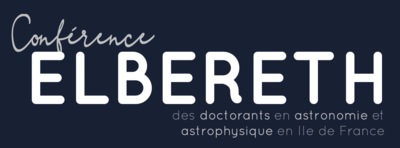Orateur
Description
Weak gravitational lensing is one of the most promising tools of cosmology to constrain models and probe the evolution of dark-matter structures. Yet, the current analysis techniques are only able to exploit the 2-pt statistics of the lensing signal, ignoring a large fraction of the cosmological information contained in the non-Gaussian part of the signal. Exactly how much information is lost, and how it could be exploited is an open question.
In this work, we propose to measure the information gain from using higher-order (i.e. non-Gaussian) statistics in the analysis of weak gravitational lensing maps. To achieve this goal, we implement fast and accurate lensing N-body simulations based on the TensorFlow framework for automatic differentiation. By implementing gravitational lensing ray-tracing in this framework, we are able to simulate lensing lightcones to mimic surveys like the Euclid space mission or the Vera C. Rubin Observatory Legacy Survey of Space and Time (LSST). These simulations being based on differentiable physics, we can take derivatives of the resulting gravitational lensing maps with respect to cosmological parameters, or any systematics included in the simulations. Using these derivatives, we can measure the Fisher information content of various lensing summary statistics on cosmological parameters, and thus help maximize the scientific return of upcoming surveys.
| Field | Cosmology |
|---|
